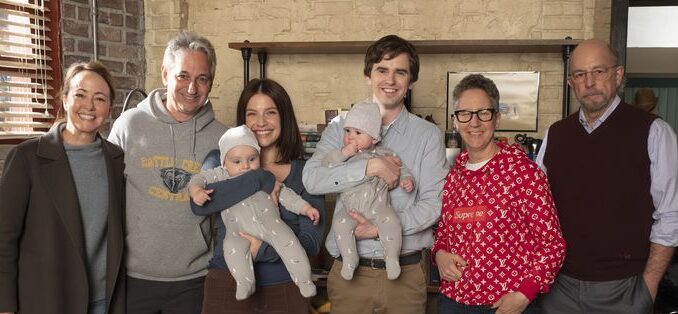
While The Good Doctor has built its reputation on gripping surgeries and medical emergencies, the series’ heartbeat often lies outside the operating room. Viewers tune in not only for tense procedures and high-stakes decisions but also for the intimate look into the doctors’ personal lives. Love, friendship, and family struggles form an essential layer of storytelling that resonates just as powerfully as the medicine.
At the center of this theme is Dr. Shaun Murphy, whose journey extends far beyond his professional achievements. His relationship with Lea Dilallo has become one of the show’s most enduring arcs, unfolding with both tenderness and difficulty. Unlike conventional television romances, Shaun and Lea’s story refuses to gloss over challenges. Instead, it explores what it means to build a partnership when communication, vulnerability, and patience are tested daily. For many fans, their relationship provides a deeply authentic portrayal of love that is shaped, but not defined, by Shaun’s autism.
Shaun and Lea’s bond has offered some of the series’ most heartfelt moments—from tentative beginnings to the joys and complications of marriage and parenthood. These storylines ground the drama in universal experiences, reminding audiences that even brilliant surgeons must navigate the everyday complexities of love, trust, and compromise.
Beyond Shaun, the ensemble cast brings a variety of personal struggles to the screen. Dr. Morgan Reznick’s ambition often clashes with her vulnerability, showing how professional drive can complicate relationships. Dr. Alex Park balances his demanding role as a physician with the responsibilities of fatherhood, adding another dimension to his character. Meanwhile, characters like Dr. Claire Browne have faced heartbreak and personal loss, making their professional compassion even more poignant.
What sets The Good Doctor apart from other medical dramas is its refusal to treat personal lives as filler between surgeries. Instead, these narratives are central to understanding who the doctors are when they step out of the operating room. Romantic entanglements and personal choices frequently intersect with professional dilemmas, forcing characters to confront how their private and public selves collide.
The balance between work and personal life is a theme that resonates strongly with audiences, particularly as it reflects a reality many professionals face. Doctors on the show often struggle with the emotional toll of their work bleeding into their relationships. In turn, their personal experiences shape the way they care for patients. This interplay of personal and professional makes the storytelling richer and the characters more relatable.
For viewers, the romantic and personal arcs offer moments of joy, heartbreak, and catharsis. They provide breathing room from the intensity of medical emergencies, while at the same time deepening the show’s emotional stakes. Fans debate favorite couples, mourn breakups, and celebrate milestones as if these fictional doctors were part of their own lives.
Ultimately, The Good Doctor proves that medicine alone does not define its characters. Their loves, losses, and personal triumphs give the series its enduring emotional depth. In a show about saving lives, it is the exploration of how the doctors live their own that makes the drama unforgettable.
